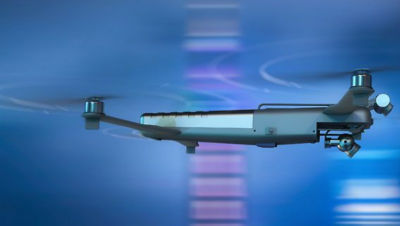-
-
Software gratuito per studenti
Ansys potenzia la nuova generazione di ingegneri
Gli studenti hanno accesso gratuito a software di simulazione di livello mondiale.
-
Connettiti subito con Ansys!
Progetta il tuo futuro
Connettiti a Ansys per scoprire come la simulazione può potenziare la tua prossima innovazione.
Paesi e regioni
Customer Center
Supporto
Partner Community
Contatta l'ufficio vendite
Per Stati Uniti e Canada
Accedi
Prove Gratuite
Prodotti & Servizi
Scopri
Chi Siamo
Back
Prodotti & Servizi
Back
Scopri
Ansys potenzia la nuova generazione di ingegneri
Gli studenti hanno accesso gratuito a software di simulazione di livello mondiale.
Back
Chi Siamo
Progetta il tuo futuro
Connettiti a Ansys per scoprire come la simulazione può potenziare la tua prossima innovazione.
Customer Center
Supporto
Partner Community
Contatta l'ufficio vendite
Per Stati Uniti e Canada
Accedi
Prove Gratuite
ANSYS BLOG
February 27, 2023
Urban Air Mobility and Aviation Acoustics Considerations
Urban air mobility (UAM) is an emerging approach to satisfy the growing demands of air transport and operations around suburban and urban settings. The objective for UAM implementation is to create a safe and efficient transportation system for people and cargo within surrounding populated areas. Considering the potential applications in logistics, defense, and humanitarian efforts, a new generation of aircraft development is under way to create systems that are optimized for UAM missions. The emerging class of UAM aircraft are battery powered, largely autonomous, and suitable for commercial and defense applications.
UAM safety is a primary concern for operators, as well as the surrounding populace. Acoustics are a critical consideration for UAM platforms in urban settings due to community health risks associated with increased noise pollution. Adverse health conditions that could result from UAM noise exposure include fatigue, psychoacoustic impacts, and tinnitus. Throughout the aviation community, acoustic-based analyses and advanced noise reduction techniques are considered vital to the sustainability of UAM practices.
Advancing Urban Air Mobility with Ansys Capabilities
To inspire more companies to develop and field a wide range of electric vertical take-off and landing (eVTOL) technologies, the United States Air Force sponsored the Agility Prime initiative. The program was designed to leverage and accelerate commercially available capabilities, and Infinity Labs pursued the opportunity to integrate leading-edge Ansys capabilities into a next-generation acoustics analysis framework to benefit the UAM community.
According to Dr. Nicholas Kuprowicz, Chief Innovation Officer at Infinity Labs and Principal Investigator for acoustics work, “The original idea I had was analogous to Google Maps, where you can use Google Street View to jump into a map and look around in three dimensions. I wanted a similar capability for aircraft acoustics, where you can become immersed in a virtual/simulated environment and hear the sound of aircraft flying nearby — at any time and from any location.”

Infinity Labs successfully demonstrated high-fidelity modeling and simulation capabilities that enable human perception of aircraft acoustics in virtual airspace environments. The team leveraged commercially available tools, including Ansys Fluent and Ansys Sound, to establish the capability, with verification and validation of the approach based on eVTOL airframes and rotor acoustics. Infinity Labs has directly enabled government research and industry hardware development with this capability, and they are expanding their application to a broader range of aircraft types and operational environments. The company expects significant growth in commercial and defense applications in which human perception of acoustics is a primary driver of aircraft route planning.
Trusting the Process
The fundamental process is simple in concept: pressure flowfield data from computational fluid dynamics (CFD) simulations of aircraft operations is input to an auralization method that transforms the pressure data into perceived sound at observer locations.


Infinity Labs established the process through two different applications designed to verify and validate the capability. The first application involved a notional eVTOL airframe and rotor design with simulated flight operations in an urban setting. In this case, they used compute resources at the Ohio Supercomputer Center, and simulations from Fluent and Star-CCM+ were compared and auralized using Sound.
The second application involved a proprietary rotor design and test hardware with physical experimentation in an anechoic chamber. In this second case, compute resources from Ansys Cloud were used directly with Fluent, and simulated flowfield characteristics were compared with high-resolution experimental flowfield data. In addition, the simulated results from Sound were compared with measured acoustic spectra at multiple receiver locations.
Ear Ringing Results
The CFD simulations accurately captured the dominant flowfield physics and the auralization realistically converts the pressure data into audible sound.



“The results were spectacular. I was truly amazed at the quality and clarity of the audio, especially for a virtual aircraft design. It sounded so real, and I remember playing those first audio results over and over again — like 10 times in a row. The process is that good,” says Dr. Kuprowicz.
Listen to the audio-only sound file above.
By using mature and robust Ansys capabilities, Infinity Labs rapidly and successfully transitioned a novel idea for aircraft acoustics analysis into a prototype and operational use. Continued Infinity Labs work will focus on the acoustics of larger aircraft types and the implications of acoustics in early-phase digital aircraft design processes.
See how Ansys Fluent and Ansys Sound can help your acoustics designs.